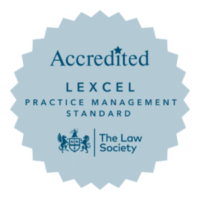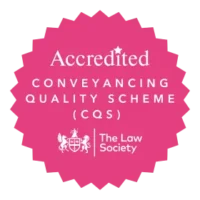Why you should register your property or land at the H M Land Registry
25th Nov 2022
We have seen a number of banks and building societies writing recently to their customers to say that they have stopped providing a deeds storage service. This means that where those banks were holding unregistered property deeds for customers (and the mortgage has been repaid), they will no longer do so and so the banks have been returning those deeds to their customers with the advice that they get their unregistered property registered at HM Land Registry.
Registration background and legal requirements
Compulsory registration was not introduced in this area until the 90s so if you purchased your property before this date it may not be registered at H M Land Registry.
The benefits of registering property and/or land
There are several reasons why it is advisable for an owner to register their property or land.
First, and probably most importantly, it is a safer option. If you store your unregistered deeds at home and they are lost or damaged you will have no proof of legal ownership. Once a property is registered at the Land Registry, the deeds are stored electronically with the Land Registry and are available for inspection online by downloading electronic copies.
Secondly, if your property remains unregistered and there is a discrepancy with the deeds, those issues could potentially cause a delay when you come to sell, transfer or charge your property because any problems with the title deeds would need to be rectified before that transaction could proceed. By registering your property you would then have a proper up to date plan and a registered title to check to make sure there are no discrepancies which could cause problems or delays in the future.
Thirdly, registration your property or land at H M Land Registry can help protect your property or land from fraud. With property fraud hitting the headlines in recent months, the Land Registry is encouraging people to get their unregistered properties registered and owners to sign up to their free property alert service.
Property fraud involves scammers who attempt to transfer your property into their name using false documents or stolen identities, in some cases even whilst you are living at your property. These scammers then raise mortgages against, or sell, your property without you knowing. Scammers typically target houses that are mortgage free, empty or not registered at the Land Registry. Unregistered properties are usually those properties that are mortgage free and have not changed hands since 1998.
Finally, the Land Registry would then have your contact details to deal with any notices or claims that they may receive over your land and will contact you with any applications they may receive to give you an opportunity to object to that application. For example, if somebody has claimed possessory title of part of the land or a right of way/easement.
The Land Registry also charge a reduced fee for a voluntary registration – this is where you voluntarily register your property or land without any other transaction. For example the reduced fee will not apply if you transfer your property at the same time. This is because it is now compulsory to register any land or property if it is being transferred, purchased or charged.
Our friendly conveyancing team can deal with the first registration of your property and, once your property is registered at HM Land Registry, you can then sign up to the Land Registry property fraud alert service.
How we can help
Our friendly conveyancing team can deal with the first registration of your property and, once your property is registered at HM Land Registry, you can then sign up to the Land Registry property fraud alert service. For more information and details on our fixed fee registration service please contact our friendly residential property team via our website, email or by telephone.

Blog Author: Jessica Weeks
CILEX Paralegal – Residential Property
Related news
Articles you may find useful
Like this article? Sign up for our regular newsletters






